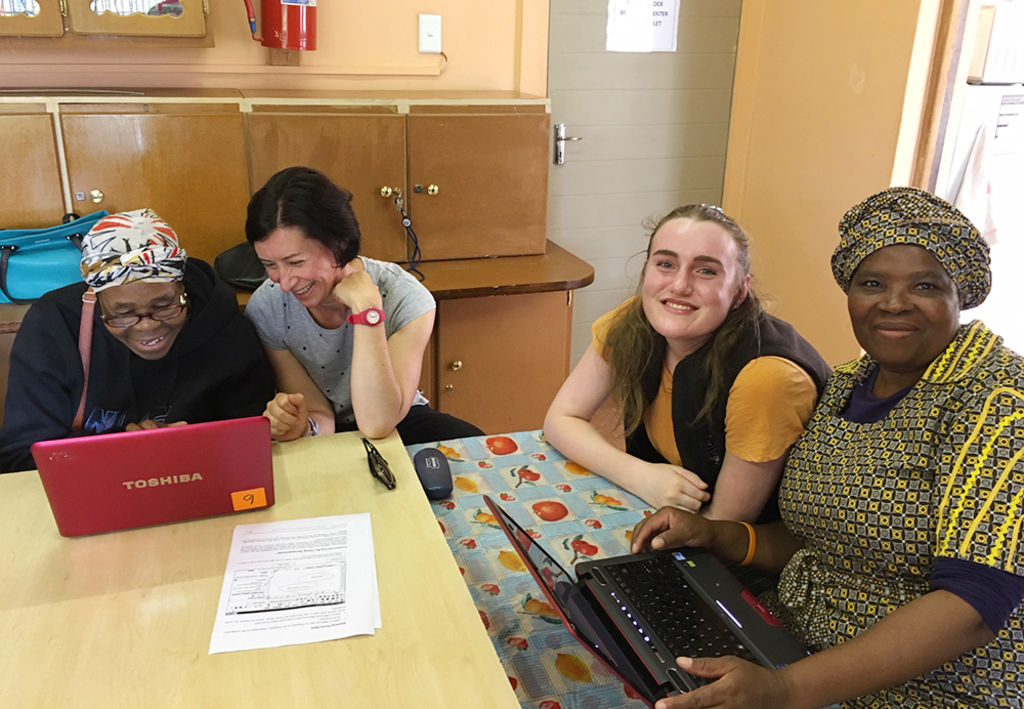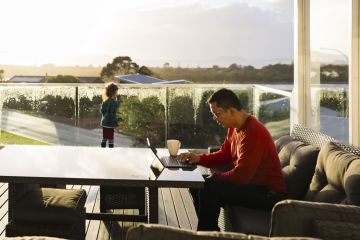Rising to the challenges: How schools are tackling real-world topics

Hanging in the corridors of Siena College in Camberwell are various embroidered textiles, handmade by the Kopanang women from Tsakane, South Africa.
The Kopanang community project was created to provide these women, many of whom have been impacted by HIV/AIDS and endemic poverty, with the opportunity to learn embroidery and craft skills, which enable them to generate a small income.
“That’s a really important visual reminder to the girls that our community extends to these people,” says Bronwyn Ilott, head of justice education at Siena, a Catholic girls’ school in the Dominican tradition.
Each year – in non-COVID times, at least – year 11 students have the opportunity to travel there for one of the school’s two immersion programs. The other is an indigenous immersion program in the Northern Territory, offered to years 9, 10 and 11 students.

“It’s a true immersion in every sense of the word,” says Ilott. “They leave comfortable, suburban Melbourne and they actually go and live in the homes of these women.
“It’s transformative. Girls come back changed in all sorts of ways,” she adds, giving the example of a student who was so moved by developing this new perspective on the world that she went on to study global politics at university and is looking at humanitarian work.
“She would not be unique, in that, that’s a lingering effect of that kind of experience.”
Siena isn’t the only school tackling real-world topics in and outside the classroom by providing their students with experiences and programs that are not only allowing them to address the issues of our times, like social justice and climate change but equipping them with the skills to rise to these challenges as future adults and leaders.
Yarra Valley Grammar, an Anglican co-ed school in Ringwood, embraces a World Religions Week and Diversity Week.
“We’ve taken students out of the school to experience a range of cultural and social settings to open their eyes,” says chaplain Paul Joy.
To learn about other beliefs has meant visits to places of worship from Islamic, Buddhist, Jewish and Catholic faiths.
“A highlight is always the Sikh temple in Blackburn who wouldn’t let us leave without serving us lunch – that’s 150 students all sitting in rows on the floor,” says Joy.
Diversity Week has included visits to Chinese, Italian and Hellenic museums and students rolling up their sleeves and pitching in with feeding the elderly, disadvantaged students and the homeless.
Like Siena, which has an Eco Warriors group, formed with students across all year levels as part of its commitment to Sustainable Development Goals (a global agenda, adopted by countries in 2015), Caulfield Grammar School is also encouraging students to learn more about the natural environment and sustainability in a hands-on way at its Yarra Junction campus.
In the mid-1940s, the Cuming family donated 335 acres to the school, and the result was a campus that would “provide students from the city an understanding of rural life in a setting with a strong focus on community living”, explains campus head Tim O’Connor.
“Students are hands-on exploring paddock-to-plate concepts on the dairy farm, in the veggie garden and in the kitchen,” he says. “They are accommodated in purpose-built eco-cabins that allow them to monitor their energy use. These things combine to encourage students to consider how our lifestyle choices can impact the world around us.
“We owe it to our young people to make learning relevant to them. Well-designed learning experiences allow students to understand how theoretical concepts apply in a real-world setting.”
The benefits of this type of learning are transferable skills, like communication, negotiation, ownership and empathy, which apply beyond adolescence.
“Our students lead the way for our school in terms of wanting to see the adults around them make responsible environmental choices, so I’m very optimistic that sustainability will remain an important consideration for them as adults.”
This article featured in Domain Review’s Independent Schools Guide.
We recommend
We thought you might like
States
Capital Cities
Capital Cities - Rentals
Popular Areas
Allhomes
More







